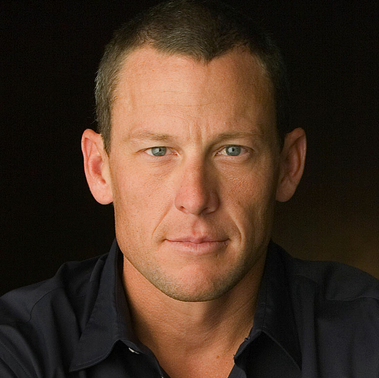A month or so ago, we learned that the world’s most celebrated cyclist had decided not to contest charges that were being brought against him by the U.S. Anti-Doping Agency (USADA). This week, the Agency set out its case against him. The power of Lance Armstrong’s decision to stop fighting the USADA’s “witch hunt,” together with the startling indictment of his behavior that has now been presented, make it difficult to know what to think—or even how to start thinking—about what has happened here.
Before reaching the question of who is “right” and who is “wrong,” there are several related questions worth thinking about.
 Heroes are inspiring. They teach us lessons about fortitude and sacrifice and making the most out of extraordinary gifts. An individual like Lance Armstrong, in the lead and pumping up that final incline, certainly seemed to be the distillation of all of those things. A true hero’s quest influences each of us in different ways, but the influence is almost entirely positive. We vicariously join him as he reaches up and touches the stars. No one ever thinks he should be doing the kinds of regular things the rest of us are doing.
Heroes are inspiring. They teach us lessons about fortitude and sacrifice and making the most out of extraordinary gifts. An individual like Lance Armstrong, in the lead and pumping up that final incline, certainly seemed to be the distillation of all of those things. A true hero’s quest influences each of us in different ways, but the influence is almost entirely positive. We vicariously join him as he reaches up and touches the stars. No one ever thinks he should be doing the kinds of regular things the rest of us are doing.
On the other hand, our media driven culture is often as relentless in its drive to pull our heroes down as it was in elevating them in the first place. When Armstrong said in essence, “I won’t dignify these charges with one more minute of my defense,” some who rallied around him at the time also voiced their opposition to the reckless way that we create and destroy our heroes.
As a culture, we build these men and women up (often way too much) only to tear them down (sometimes way too far) when they begin to reveal that they were only human after all. It’s the modern version of ancient Greek tragedy. But as part of the entertainment cycle, to treat our heroes like this time and time again is just plain wrong. It would be far better to view them from start to finish as the mere morals that they are.
On the other hand, the rule enforcers who are front and center when our heroes are torn down often seem entirely too mortal. When lecturing giants about their ethical obligations, they tend to look small, and come off as a tad repressed. Moreover, it used to be common knowledge that monitors of virtue not only did their enforcement work in secret, but also had laundry that was as dirty, if not dirtier than those they passed judgment upon. Given these lingering doubts, what should we make of bodies like the USADA who are trying to maintain ethical standards by staying one step ahead of the cheaters?
What reduces our doubts is the largely transparent way in which the rule enforcers go about their business today. In the Armstrong investigation, the USADA’s findings were published in major newspapers, and most of the underlying “facts” were made available to the public. You and I get to review as much or as little of this record as we want before reaching our own conclusions.
The more transparent their decision-making, the more legitimate the moral judges become. Openness also makes it easier to argue for how essential their role can be. Even during the ritual murder of our heroes, we can all learn something about what is “right” and “wrong” when the ethics monitors invite us to think about issues of social consequence along with them. Transparency allows for a teachable moment, that is, as long as we are open to being taught.
I don’t know whether Lance Armstrong did what the USADA says he did. “The alleged facts” seemed overwhelming until I recalled Armstrong’s very public participation in marathons and Iron Man competitions over the past couple of months. If you really had done all the things he has been accused of, would you be able to make highly publicized appearances like this, while talking up your good work at the Live Strong Foundation? Can anyone really be so brazen—or so deluded? If Armstrong’s not the victim of trumped-up charges, what has our Hero Machine helped to produce here?
In a decade long factual record supported by the confessions of his teammates, the USADA accuses Armstrong not only of concocting an elaborate blood doping scheme to bolster his individual performances, but also of using his stature in the sport and the power of his personality to browbeat his teammates into cheating as well. Why? So they would be deterred from ever calling him out. According to the charges, the many ways that Armstrong doped his way to victory are almost swamped by how relentlessly he enforced his code of silence.
When the cheaters can (even allegedly) act like this, those charged with maintaining our moral standards need to be at least as resourceful and steadfast as those they are trying to deter.
Because we all deserve to have a fair shot—and because our true heroes require it.